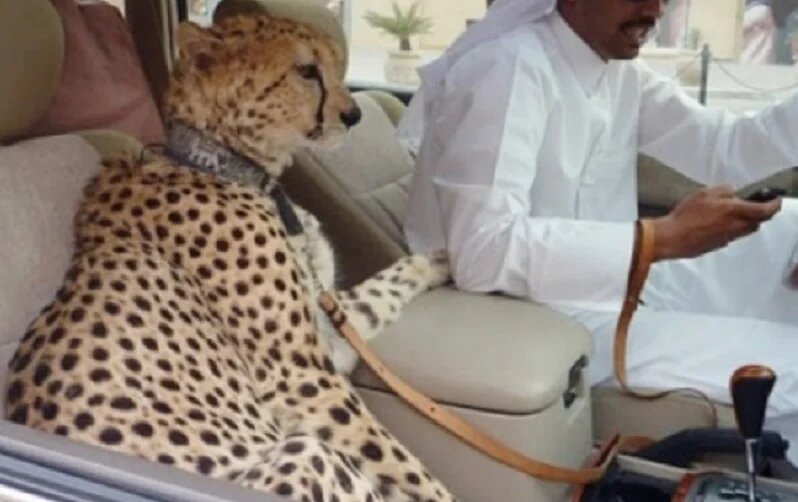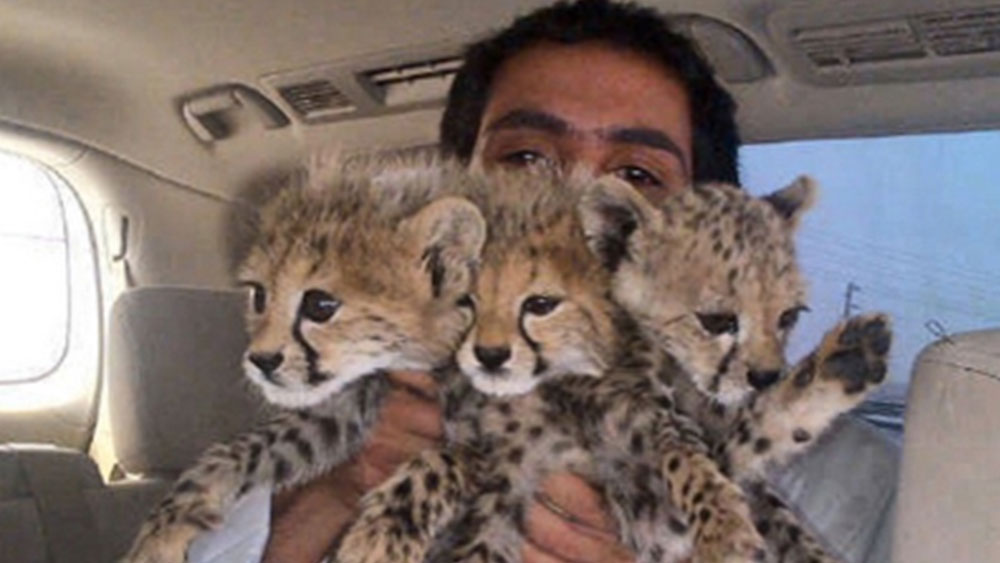Dubai, renowned for its towering skyscrapers, luxurious lifestyle, and world-class attractions, has also gained attention for its fascination with exotic animals. From traditional falconry to high-end private collections and conservation efforts, the city’s relationship with wildlife is as diverse as its landscape. While some residents see exotic animals as status symbols, Dubai has also emerged as a leader in wildlife protection, balancing ownership regulations with conservation initiatives. This intricate relationship between luxury and responsibility makes Dubai a fascinating hub for rare and exotic creatures.
The Cultural Fascination with Exotic Animals
Dubai’s affinity for exotic animals is deeply rooted in the region’s history and traditions. For centuries, Bedouins relied on falcons for hunting, Arabian horses for travel, and Salukis for protection. These animals were not merely pets but essential companions that aided survival in the harsh desert environment. Over time, this cultural reverence evolved, and rare animals became symbols of prestige and power among the region’s elite.
With the rise of social media, this fascination has been further amplified, showcasing affluent individuals posing with exotic pets like cheetahs, tigers, and rare birds. However, as public awareness grows regarding the ethical concerns surrounding private ownership, Dubai has taken significant steps to regulate the trade and treatment of these animals.

Luxury Private Collections and Wildlife Parks
Dubai is home to some of the most extravagant private animal collections in the world. Wealthy individuals, including members of the royal family, have invested millions in maintaining personal wildlife reserves where rare species are cared for in expansive, high-quality enclosures. These private collections often house species such as white tigers, leopards, and rare parrots, with some facilities rivaling the best zoos in the world in terms of habitat quality and veterinary care.
Beyond private collections, Dubai boasts world-class wildlife attractions that serve both conservation and educational purposes. The Dubai Safari Park, for instance, houses over 3,000 animals across multiple zones that mimic their natural habitats, offering visitors an ethical and immersive experience. The park plays a crucial role in wildlife conservation, focusing on breeding programs for endangered species.
The Al Ain Zoo, another renowned facility, is home to over 4,000 animals and is committed to research and conservation efforts. It actively works on breeding programs for species such as the Arabian leopard and the Scimitar-horned oryx, helping prevent their extinction.
These attractions not only provide visitors with a chance to witness exotic animals up close but also educate the public about the importance of conservation.

Regulations on Exotic Animal Ownership
While Dubai’s elite have long been fascinated with exotic pets, the UAE government has introduced strict laws to regulate their ownership. In 2017, the Federal Law No. 22 was enacted to prohibit individuals from keeping wild animals as pets. Under this law:
- Private ownership of wild and dangerous animals, such as lions, tigers, and cheetahs, is strictly prohibited.
- Only licensed wildlife parks, zoos, and research centers are permitted to house exotic animals.
- Individuals found in possession of illegal exotic pets face fines up to AED 500,000 and possible imprisonment.
- Using wild animals for public display, social media promotion, or walking them in residential areas is banned.
These laws aim to prevent illegal wildlife trafficking and ensure that exotic animals are cared for in ethical and suitable environments. However, some illegal trading still persists, prompting authorities to conduct regular crackdowns to rescue mistreated animals.
Falconry: A Legal and Cultural Exception
While most exotic animals are heavily regulated, falconry remains a revered and legal tradition in the UAE. Falcons have been an integral part of Emirati heritage for centuries, used in hunting and sporting competitions. Today, they continue to hold cultural significance, with specialized breeding programs and training centers dedicated to their care.
Falcons in Dubai even receive their own passports for travel, allowing them to be transported legally to international competitions and hunting events. The city is also home to the Dubai Falcon Hospital, the world’s largest and most advanced facility for treating falcons, reinforcing the UAE’s commitment to this ancient tradition.
The Role of Conservation Efforts
Dubai has made significant strides in wildlife conservation, ensuring that its interest in exotic animals is matched by responsibility and care for endangered species. Several initiatives and wildlife reserves have been established to protect native and exotic animals from habitat loss and illegal hunting.
The Dubai Desert Conservation Reserve (DDCR), spanning over 225 square kilometers, is one of the region’s largest protected areas. It plays a vital role in preserving native species such as the Arabian Oryx, sand gazelles, and desert foxes. The reserve also supports research and eco-tourism, allowing visitors to experience the natural beauty of the UAE while promoting sustainability.
Additionally, organizations like the Emirates Park Zoo actively engage in breeding programs for endangered species. These programs aim to rehabilitate and eventually reintroduce animals into the wild, contributing to global conservation efforts.
Dubai’s Exotic Animal Black Market
Despite strict regulations, illegal wildlife trade remains a challenge. Reports of traffickers attempting to smuggle rare animals into Dubai surface occasionally, as demand persists among collectors willing to pay high prices for exotic pets. Authorities continue to crack down on such activities, seizing animals like baby lions, rare tortoises, and exotic birds from smugglers.
One of the reasons illegal trade persists is the status symbol associated with owning rare animals. However, with increased awareness, public attitudes are gradually shifting toward more ethical wildlife practices. Many former private collectors are now supporting conservation efforts instead, recognizing the importance of proper care and habitat preservation.
The Future of Exotic Wildlife in Dubai
As Dubai continues to evolve, so does its relationship with exotic animals. The city is moving toward a more ethical and conservation-focused approach, ensuring that rare species are protected rather than exploited. Strict regulations, high penalties for illegal trading, and increased public awareness are gradually shaping a more responsible wildlife culture.
Luxury private collections are giving way to well-maintained wildlife reserves and conservation parks, where animals receive the care they need in naturalistic settings. Ethical tourism initiatives, such as guided safaris and wildlife education programs, are also gaining traction, offering visitors a chance to appreciate exotic animals without contributing to their exploitation.
Dubai’s blend of tradition, luxury, and conservation sets an example for the rest of the world. As it continues to enforce responsible wildlife policies while preserving its rich heritage, the city is poised to become a global leader in sustainable wildlife management. The future of exotic animals in Dubai is no longer just about prestige—it’s about protection, education, and ethical coexistence.
Do follow Uae stories for more Updates
Dubai’s Zuma: The Ultimate High-End Japanese Dining Experience in DIFC













